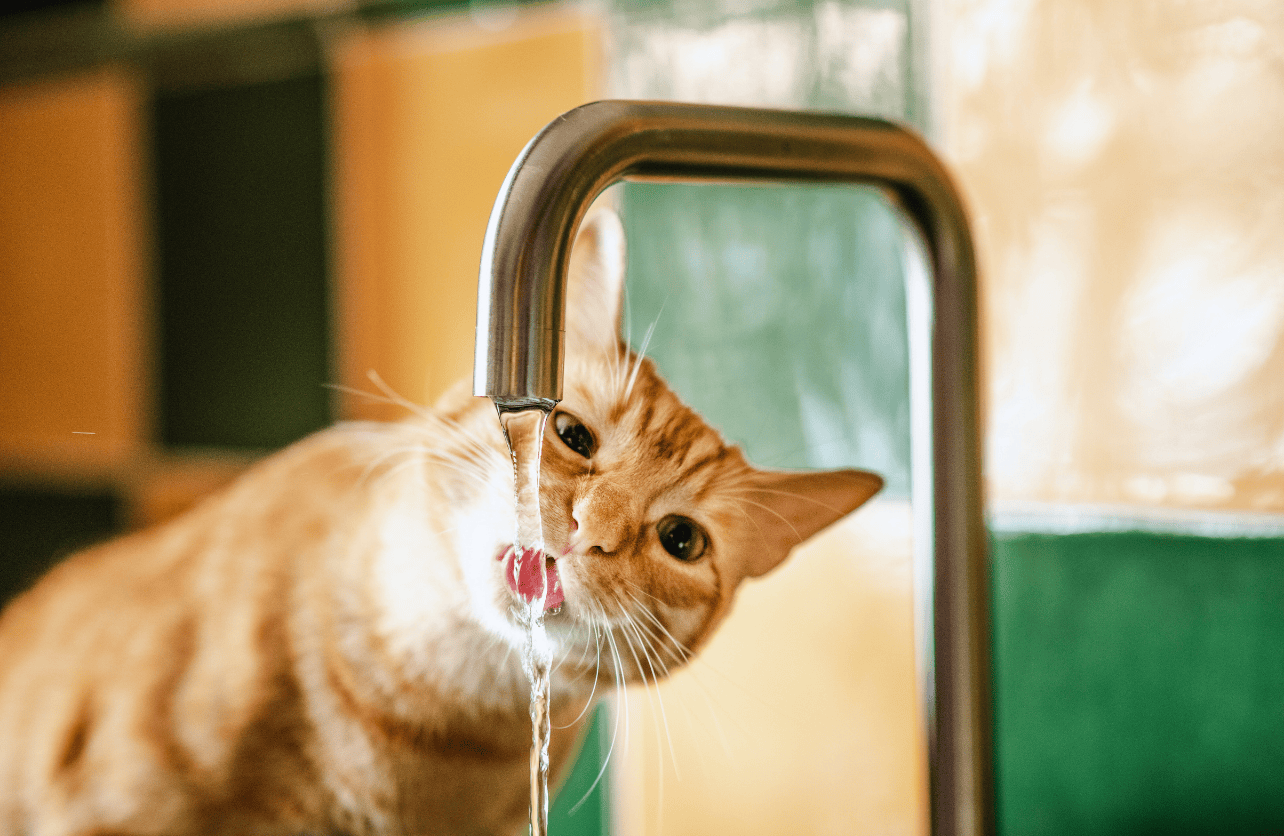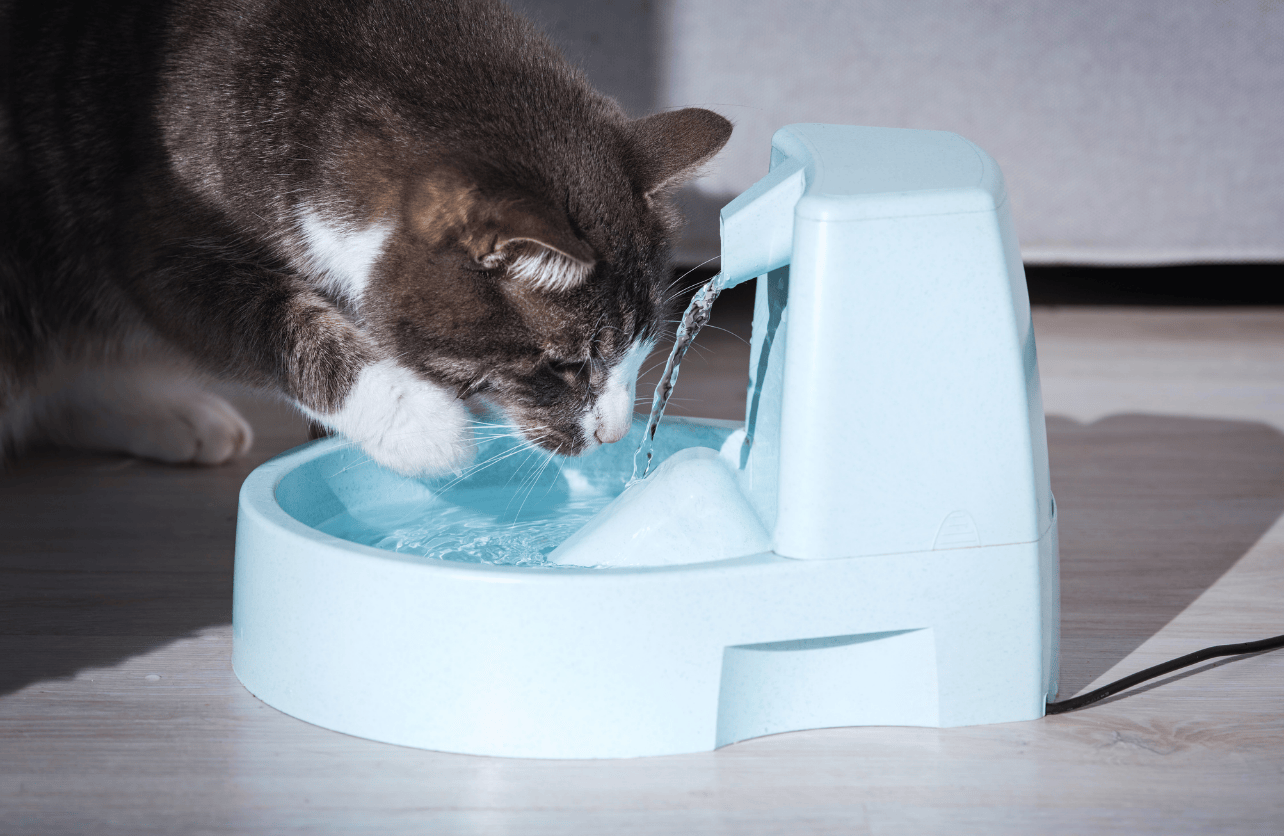The Connection Between Hydration and Appetite in Cats

Water is essential for a cat’s overall health, but did you know it also plays a critical role in their appetite? Proper hydration helps regulate a cat’s body functions, including digestion and energy levels, which directly influence their eating habits. Understanding the link between hydration and appetite can help you ensure your cat stays healthy and happy. Let’s dive into the importance of water intake for cats, how it affects their appetite, and practical ways to keep your feline friend hydrated.
Why Hydration Matters for Cats
Due to their desert ancestry, cats are naturally low-thirst animals, but their bodies still rely on water for essential functions like nutrient absorption, waste elimination, and body temperature regulation. Dehydration can quickly lead to health problems, including reduced appetite, lethargy, and, in severe cases, kidney issues.
The Impact of Hydration on Appetite
Digestive Efficiency
Water is crucial for breaking down food and aiding digestion. When a cat is dehydrated, their digestive system may slow down, leading to a reduced appetite or difficulty processing meals.
Energy Levels
Hydration affects energy levels, which in turn impacts a cat’s willingness to eat. A lethargic or low-energy cat may show less interest in food.
Palatability of Food
Cats often prefer moist food, as it mimics the high water content found in prey. Dehydrated cats may instinctively avoid dry kibble, further decreasing their overall food intake.
Kidney Health
Dehydration puts a strain on the kidneys, which can lead to nausea or discomfort—both of which can suppress appetite. Cats with chronic kidney disease are particularly at risk of dehydration affecting their eating habits.
Signs of Dehydration in Cats
Spotting dehydration early is critical. Watch for these signs:
- Dry gums or sticky saliva
- Sunken eyes
- Lethargy or reduced activity
- Poor skin elasticity (slow skin tent return when gently pinched)
- Decreased urination or overly concentrated urine
If you notice these symptoms, consult a veterinarian immediately.
Practical Ways to Keep Your Cat Hydrated

Provide Fresh, Clean Water
Cats are picky about their water source. Ensure their bowl is clean and filled with fresh water daily. If your cat seems uninterested, consider using filtered water or changing the bowl material to ceramic or glass, which can make water more appealing.
Introduce Wet Food
Wet food, which can contain up to 80% water, is an excellent source of hydration. If your cat primarily eats dry kibble, consider mixing in wet food or gradually transitioning to a wet diet.
Add Water to Their Food
For cats resistant to wet food, adding a small amount of water or low-sodium chicken broth to their dry food can increase moisture intake while enhancing flavor.
Use a Cat Water Fountain
Many cats prefer running water, as it mimics natural streams. A cat water fountain can encourage them to drink more by providing a continuous flow of fresh, cool water.
Offer Multiple Water Stations
Place water bowls in various locations throughout your home to make drinking convenient. Cats may be more likely to drink if water is readily accessible in their favorite lounging areas.
Flavor the Water
Adding a splash of tuna water (unsalted) or bone broth can make water more enticing for cats who need encouragement to drink.
Encouraging a Balance Between Hydration and Appetite
Once your cat is properly hydrated, you’ll likely notice an improvement in their appetite. A hydrated cat is more energetic, less prone to nausea, and better equipped to enjoy their meals. Monitoring their water intake and adjusting their feeding routine as needed can help maintain this balance.
Final Thoughts
Hydration and appetite are closely connected in cats, with water intake playing a vital role in their overall health and eating habits. By ensuring your cat stays hydrated through clean water, wet food, and creative strategies, you can support their digestion, energy levels, and kidney health—all of which contribute to a healthy appetite.
A well-hydrated cat is a happier, healthier pet. With a few simple adjustments, you can make sure your feline friend thrives for years to come.
Your Pet’s Best Interest, Always
At Pet Institute, we take pet care seriously. We're dedicated to transparency, impartiality, and the well-being of your pets in every article, review, and recommendation we provide. Our unwavering commitment to these principles ensures that you, our valued reader, always receive reliable and unbiased information. Let us be your trusted guide in the world of pet care and companionship.